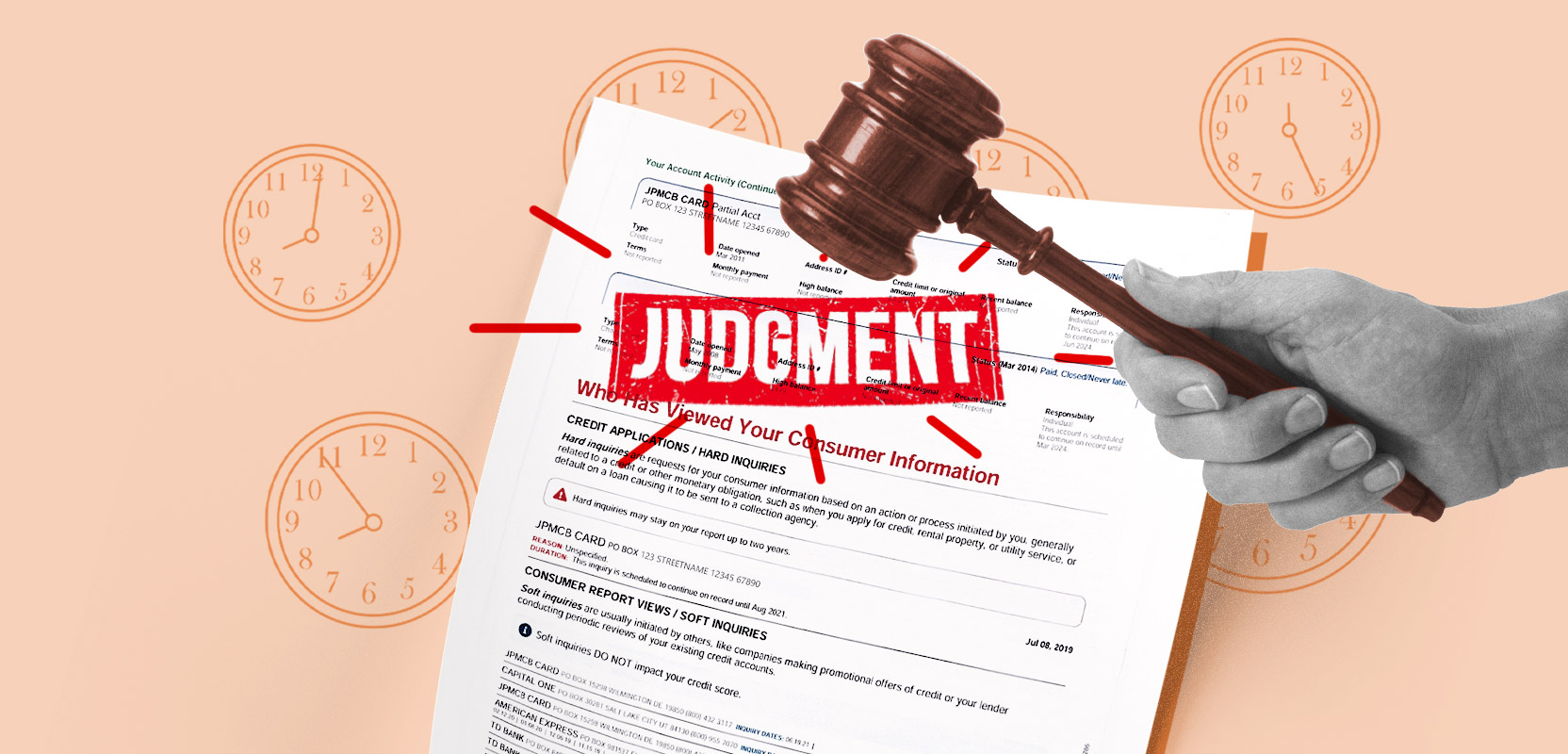

Finance
How Long Do Auto Loans Stay On Credit Report
Published: October 20, 2023
Learn how long auto loans stay on your credit report and the impact they have on your finances. Find out how to manage your credit wisely.
(Many of the links in this article redirect to a specific reviewed product. Your purchase of these products through affiliate links helps to generate commission for LiveWell, at no extra cost. Learn more)
Table of Contents
Introduction
When it comes to managing your finances, understanding how credit reports and scores work is crucial. A credit report is a detailed record of an individual’s credit history, including information about their loans, credit cards, and payment history. This report is used by lenders, landlords, and even employers to assess an individual’s creditworthiness and make decisions about extending credit or offering opportunities.
One important component of credit reports is the listing of auto loans. Auto loans can have a significant impact on your credit report, affecting your credit score and overall creditworthiness. Whether you are planning to purchase a new car or thinking about refinancing an existing loan, it is essential to know how long auto loans stay on your credit report and how they can influence your financial future.
In this article, we will delve into the details of credit reports, explore the connection between auto loans and credit reports, and discuss the duration that auto loans are typically listed. Additionally, we will highlight the implications of auto loans on credit scores and provide some tips to effectively manage your auto loans and credit reports.
Understanding Credit Reports
A credit report is a detailed document that provides a snapshot of an individual’s credit history. It includes information about their borrowing and repayment habits, as well as their credit utilization and payment patterns. Credit reports are prepared and maintained by credit reporting agencies, such as Equifax, Experian, and TransUnion.
These credit reporting agencies collect and compile information from various sources, including lenders, banks, credit card companies, and collection agencies. The information gathered includes the types of credit accounts held, the balance owed on each account, the payment history, and any negative information such as bankruptcies or late payments.
Credit reports also contain personal identifying information, such as the individual’s name, address, social security number, and employment history. This information is used by lenders and other financial institutions to confirm the identity of the individual and evaluate their creditworthiness.
When you apply for a loan or a credit card, the lender will typically request a copy of your credit report from one or more of the credit reporting agencies. They use this information to assess the level of risk associated with lending money to you. A positive credit report, with a history of timely payments and low credit utilization, can improve your chances of securing favorable loan terms and interest rates.
It is important to regularly review your credit report to ensure its accuracy and identify any potential errors that could negatively impact your creditworthiness. The Fair Credit Reporting Act (FCRA) grants individuals the right to request a free copy of their credit report from each of the three major credit reporting agencies once every 12 months.
Auto Loans and Credit Reports
Auto loans play a significant role in shaping your credit report and overall creditworthiness. When you take out an auto loan to finance the purchase of a vehicle, the details of the loan are typically reported to the credit reporting agencies. This information becomes a part of your credit history and can have a lasting impact on your credit report.
When an auto loan is reported on your credit report, it provides lenders with insights into your borrowing and repayment behavior. They can see the amount of the loan, the duration of the loan, and your payment history. If you make timely payments and fulfill your obligations, it reflects positively on your credit report and can help improve your credit score.
On the other hand, if you miss payments or default on your auto loan, it can have a detrimental effect on your credit report. It can lower your credit score and make it challenging to secure future loans or credit opportunities. However, by maintaining a positive payment history and managing your auto loan responsibly, you can establish a strong credit foundation.
It’s worth noting that certain types of auto loans may not be reported on credit reports. For example, if you purchase a car through a buy-here-pay-here dealership or a private seller who does not report to the credit bureaus, the loan may not appear on your credit report. In such cases, the loan would not directly impact your credit history or credit score.
Additionally, it’s important to understand that credit reports are not static and can change over time. As you make payments on your auto loan and reduce the outstanding balance, it will be reflected in your credit report. This demonstrates to lenders that you have a proven track record of managing your debt responsibly and can positively impact your creditworthiness.
Now that we have established the connection between auto loans and credit reports, let’s delve into the duration that auto loans typically stay on your credit report and how they impact your credit score.
How Long Auto Loans Stay on Credit Reports
The duration that auto loans stay on credit reports can vary depending on several factors. Generally, auto loans remain on your credit report for a period of seven years from the date of the first delinquency. This means that if you have missed payments or defaulted on your auto loan, it can negatively impact your credit report for up to seven years.
However, it’s important to note that if you have successfully paid off your auto loan without any issues, it will still be listed on your credit report but in a positive manner. The record of your timely payments and successful completion of the loan can actually work in your favor and demonstrate responsible credit management to future lenders.
During the seven-year period, both the original loan and any subsequent refinancing or modifications will be included in your credit report. This is why it is crucial to make all your auto loan payments on time and in full, as any missed or late payments can significantly impact your creditworthiness.
It’s worth mentioning that if you have multiple auto loans, each loan will be listed separately on your credit report. This is beneficial if you have a strong repayment history on one loan but may have encountered difficulties with another. Lenders will be able to assess your overall creditworthiness by looking at each individual loan and its associated payment history.
As time passes and the negative information regarding your auto loan ages, its impact on your credit score diminishes. Lenders tend to focus more on recent credit history when making decisions, so if you have made significant improvements and are managing your credit responsibly, the effect of older negative information will gradually fade.
It is important to remember that even once an auto loan is removed from your credit report after seven years, it may still be visible to certain entities. For example, if you apply for certain types of government security clearances or certain insurance policies, these agencies may have access to your credit history beyond the seven-year mark.
Understanding the time frame that auto loans stay on your credit report can help you make informed decisions and take steps to improve your creditworthiness over time. It highlights the importance of maintaining a positive payment history and managing your auto loans responsibly.
The Impact of Auto Loans on Credit Scores
Auto loans have a significant impact on credit scores as they are considered installment loans. Installment loans, such as auto loans, are different from revolving credit accounts like credit cards in how they are repaid. Understanding how auto loans affect credit scores can help you make informed decisions regarding your financial future.
One of the most important factors in determining your credit score is your payment history. On-time payments on your auto loan can have a positive impact on your credit score, showing lenders that you are responsible and trustworthy when it comes to managing your debts. Conversely, missed or late payments can severely damage your credit score and make it harder for you to secure future loans or credit.
Another factor that comes into play is your credit utilization ratio. This ratio is the amount of credit you have used compared to the total credit available to you. Auto loans do not directly affect your credit utilization ratio since they are installment loans with fixed repayment terms. However, the impact comes from the overall debt load that auto loans contribute to. If you have multiple auto loans or substantial debt from other sources, it can increase your credit utilization ratio and negatively impact your credit score.
Furthermore, the length of your credit history plays a role in determining your credit score. Auto loans, especially those that have been paid on time and in full, can contribute positively to the length of your credit history. Lengthy, positive credit history shows lenders that you have a track record of responsible borrowing and repayment, which can improve your credit score over time.
It’s worth noting that applying for an auto loan can also have a small, temporary impact on your credit score. When you apply for a loan, the lender typically requests a copy of your credit report, resulting in a hard inquiry on your credit. While this can lower your credit score by a few points, the impact is usually minimal and decreases over time.
In summary, auto loans can have a significant impact on credit scores. Timely payments, responsible debt management, and a longer credit history can all contribute to a higher credit score. On the other hand, missed payments, high debt loads, and excessive credit applications can lower your credit score. Understanding these factors can help you make informed decisions to improve and maintain a healthy credit score.
How Auto Loans Affect Creditworthiness
Auto loans can have a significant impact on your creditworthiness, which is a measure of your ability to repay borrowed funds. Lenders and financial institutions evaluate your creditworthiness to determine whether to approve your loan application and what terms to offer you. Here’s how auto loans can affect your creditworthiness.
1. Credit History: Auto loans are reported on your credit report, and a positive payment history can improve your creditworthiness. Making on-time payments and completing the loan successfully demonstrates responsible borrowing and repayment habits.
2. Credit Mix: Lenders assess the variety of credit accounts you have, as it shows your ability to manage different types of debts. Having a mix of credit, including an auto loan, can contribute positively to your creditworthiness and demonstrate your ability to handle different financial obligations.
3. Debt-to-Income Ratio: Your debt-to-income ratio compares your monthly debt payments to your monthly income. Auto loans can add to your monthly debt burden, affecting this ratio. Lenders prefer a lower debt-to-income ratio, as it shows that you have enough disposable income to handle new financial obligations.
4. Credit Utilization: Although auto loans are installment loans and do not directly affect your credit utilization ratio (the amount of credit you’re using compared to your total available credit), they contribute to your overall debt. Excessive debt from auto loans, combined with other debts like credit card balances, can raise your credit utilization ratio and lower your creditworthiness.
5. Credit Inquiries: When you apply for an auto loan, the lender typically checks your credit report, resulting in a hard inquiry. Multiple hard inquiries within a short period can indicate risk to lenders and temporarily lower your credit score. It’s important to minimize the number of loan applications you submit and only apply for credit when necessary.
6. Future Borrowing Opportunities: Successfully managing an auto loan and maintaining good creditworthiness can open doors to future borrowing opportunities. Lenders will deem you trustworthy and may offer more favorable loan terms, including lower interest rates and higher loan amounts.
By understanding how auto loans affect your creditworthiness, you can make informed decisions about managing your finances and maintaining a strong credit profile. It’s important to make consistent, timely payments, manage your debts responsibly, and monitor your credit report regularly to ensure its accuracy and address any potential issues.
Tips for Managing Auto Loans and Credit Reports
Managing your auto loans and credit reports effectively is crucial for maintaining a healthy financial profile. Here are some tips to help you navigate the process:
- Stay on Top of Payments: Make your auto loan payments on time and in full each month. Late or missed payments can have a negative impact on your credit score and overall creditworthiness. Set up automatic payments or reminders to ensure you never miss a payment.
- Pay Down Debt: Aim to reduce your overall debt, including your auto loan balance. By paying down your debts, you can improve your credit utilization ratio and demonstrate responsible debt management.
- Check Your Credit Report Regularly: Review your credit report regularly to monitor for any errors or inaccuracies. Dispute any incorrect information and work with the credit reporting agencies to resolve the issues promptly.
- Monitor Your Credit Score: Keep an eye on your credit score to track your progress and identify areas for improvement. Many banks and credit card companies offer free access to credit scores. Use this information to make informed decisions about your financial health.
- Limit Credit Applications: Be selective when applying for new credit. Each credit application results in a hard inquiry on your credit report, which can temporarily lower your credit score. Only apply for credit when you genuinely need it to avoid unnecessary impact on your creditworthiness.
- Consider Refinancing: If you have an existing auto loan with unfavorable terms, explore the possibility of refinancing. Refinancing can help you secure a lower interest rate, reduce monthly payments, or shorten the loan term. However, it’s important to carefully evaluate the costs and benefits before making a decision.
- Create a Budget: Develop a budget that includes your auto loan payments and other financial obligations. By sticking to a budget, you can ensure that you have enough funds to meet your loan obligations and avoid falling behind on payments.
- Communicate with Lenders: If you encounter financial difficulties or anticipate challenges in making your auto loan payments, reach out to your lender proactively. They may be willing to work with you to find a solution, such as a temporary payment arrangement or loan modification.
- Be Patient and Persistent: Improving your creditworthiness and managing your auto loans takes time and consistent effort. Be patient with the process and stay persistent in your financial goals. Over time, responsible credit management will lead to a stronger credit profile.
By following these tips, you can effectively manage your auto loans and credit reports, improving your financial stability and increasing your chances of securing favorable loan terms and credit opportunities in the future.
Conclusion
Understanding the relationship between auto loans and credit reports is essential for anyone looking to maintain a healthy financial profile. Auto loans can have a significant impact on your creditworthiness, credit score, and overall ability to secure future credit.
Throughout this article, we have explored how auto loans are reported on credit reports, the duration they typically stay on your report, and the effects they can have on your credit score. We have also discussed the importance of managing your auto loans responsibly and provided tips for effectively maintaining your creditworthiness.
Remember, making on-time payments, keeping your overall debt in check, and regularly monitoring your credit report are key factors in managing your auto loans and credit reports successfully. By practicing responsible credit habits, such as paying your bills on time and avoiding unnecessary credit applications, you can improve your creditworthiness and increase your financial opportunities.
It’s important to stay informed about the specifics of your auto loan and regularly review your credit report for any inaccuracies or errors. By taking proactive steps to manage your credit, you can ensure the accuracy of your credit report and maintain a strong credit profile.
In conclusion, auto loans can be an important tool for financing a vehicle, but they also impact your credit report and creditworthiness. By understanding the dynamics between auto loans and credit reports and implementing the tips provided, you can navigate the world of credit effectively and secure a solid financial foundation for the future.














